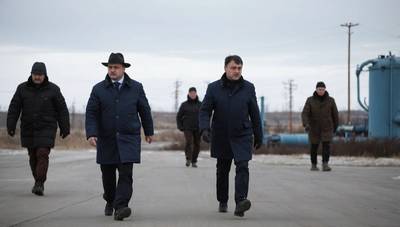Minister: Separatist Moldovan Region faces crisis without Russian gas
Transdniestria, the pro-Russian separatist region of Moldova, faces a severe economic crisis due to this year's stoppage of Russian gas supplies and a collapse of industrial and agricultural production. A senior minister from the enclave stated on Wednesday that.
Why it's important
Maia Sandu, Moldova's proeuropean president, has warned that Russia may use the instability in Transdniestria as a means to create chaos and to influence an election scheduled for September to ensure a government and parliament more favorable to Moscow.
Sandu wants to join the European Union by 2030
KEY QUOTES
The forecasts for Transdniestria’s economy do not look encouraging due to the uncertainty surrounding gas supplies, the lack of a contract regarding power exports by the thermal plant, and the fact that the major industrial plants remain idle, Economic Development Minister Sergei Obolonik said at a government meeting on Wednesday.
According to local media, he stated that "there is still a possibility" of new sanctions or restrictive regulations being introduced by Moldova.
CONTEXT
Transdniestria separated from Soviet Moldova in the year 1990. It has been living peacefully with the rest of the newly independent state for over 30 years, thanks to Moscow's assistance.
In January, Russia cut off supplies of gas that was virtually free after Ukraine closed a transit pipe. Separatist authorities obtained alternative gas from a Hungarian provider with Russian funding. However, this supply was not enough to keep the economy afloat.
By the Numbers
Obolonik predicted a 12% decline in gross domestic products in the second half year compared to a year earlier, a 30% drop in industrial production, a 6 % slide in agricultural output, a 20 % slide in foreign trade, and an inflation rate of 16 %.
He said that the improvement next year depends on finding reliable sources of gas and that Moldova does not introduce punitive measures.
Obolonik stated that "we cannot expect real economic growth." "The best case scenario is that indicators remain at the same levels as this year."
(source: Reuters)










